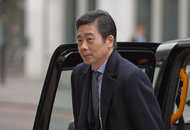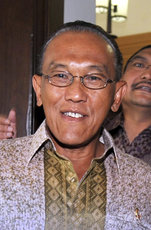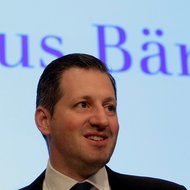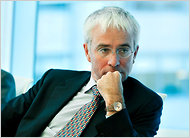SINGAPORE — Asia needs to guard against asset bubbles, and its emerging economies must improve government institutions and liberalize rigid labor and product markets to encourage development, the International Monetary Fund said Monday.
“Emerging Asia is potentially susceptible to the ‘middle-income trap,’ a phenomenon whereby economies risk stagnation at middle-income levels and fail to graduate into the ranks of advanced economies,” the I.M.F. said in its Regional Economic Outlook report for Asia and the Pacific.
Economies in Asia “are less exposed to the risk of a sustained growth slowdown” than those in other regions, the international funding agency added. “However, their relative performance is weaker on institutions.”
The I.M.F.’s warning comes at time when Asia looks set to lead a global economic recovery.
“While the external risk of severe economic fallout from an acute euro area crisis has diminished, regional risks are coming into clearer focus,” the I.M.F. said. “These include some ongoing buildup of financial imbalances and rising asset prices.”
The I.M.F. is monitoring credit ratios and output levels in Asia closely, as conditions cold worsen very quickly, Anoop Singh, the fund’s director for the Asia-Pacific region, said at a news briefing in Singapore. He said the regional authorities needed to respond early and decisively to potential overheating.
The I.M.F., which recently cut its 2013 and 2014 growth forecasts for greater China, India, Singapore and South Korea but raised its outlooks for Malaysia and the Philippines, sounded generally positive about near-term prospects.
“Growth in Asia is likely pick up gradually in the course of 2013, to about 5.75 percent, on strengthening external demand and continued robust domestic demand,” the report said.
China, Indonesia, India and the Philippines need to improve their economic institutions, while India, the Philippines and Thailand are also exposed to a larger risk of a growth slowdown stemming from subpar infrastructure, the report said.
China and Malaysia are the highest-ranked developing Asian countries on an I.M.F. chart measuring institutional strength, while India, Indonesia and the Philippines are at the bottom. The I.M.F. defined institutional strength as demonstrating higher political stability, better bureaucratic capability, fewer conflicts and less corruption.
For many developing Asian economies, there remains ample room for easing stringent regulations on products and in some cases labor markets, the fund said.
The I.M.F. also said that various statistical approaches indicated that growth rates had slowed in China and India. For China, growth appears to have peaked at about 11 percent in 2006-7, while India’s growth is now about 6 percent to 7 percent, compared with about 8 percent before the financial crisis. “By contrast, trend growth for most Asean countries seems to have remained stable or to have increased somewhat, with the notable exception of Vietnam,” the fund said. Asean is the acronym for the 10-member Association of Southeast Asian Nations.
Mr. Singh, the fund’s regional director, said that the I.M.F. appreciated Japanese efforts to stimulate its economy, and that quantitative easing — in which a central bank buys assets like bonds with newly created money to help growth — was just part of a package of measures that included cutting debt and structural overhauls like increasing women’s participation in the work force.
“In Japan, we have welcomed the measures taken,” he said. “It’s because they are focused on addressing the deflation that has affected Japan for the last 10 to 15 years. As Japan moves back to sustainable positive growth, it’s going to help the region and the global economy, and that is the most important.”
Article source: http://www.nytimes.com/2013/04/30/business/global/30iht-asiaecon30.html?partner=rss&emc=rss





